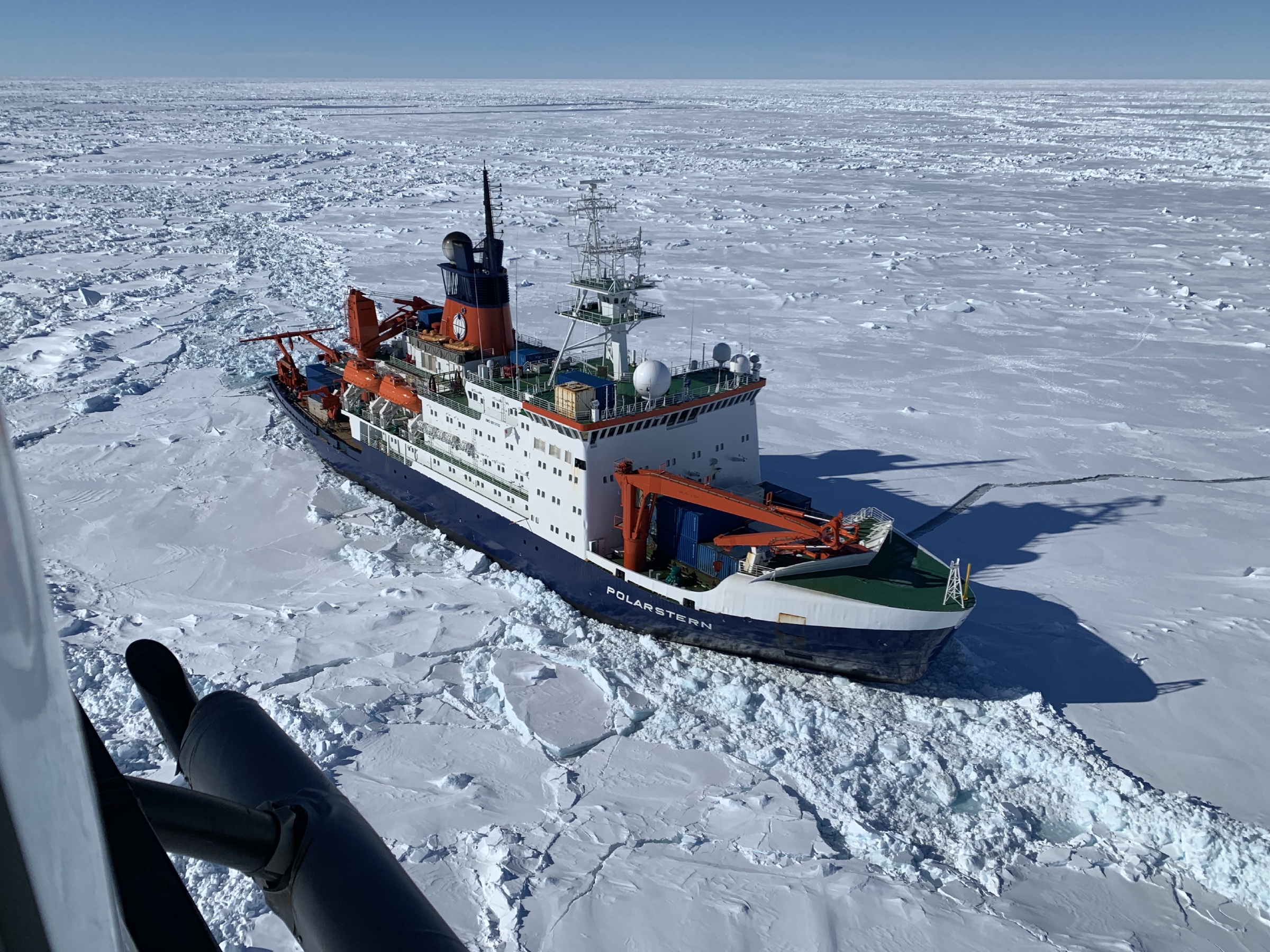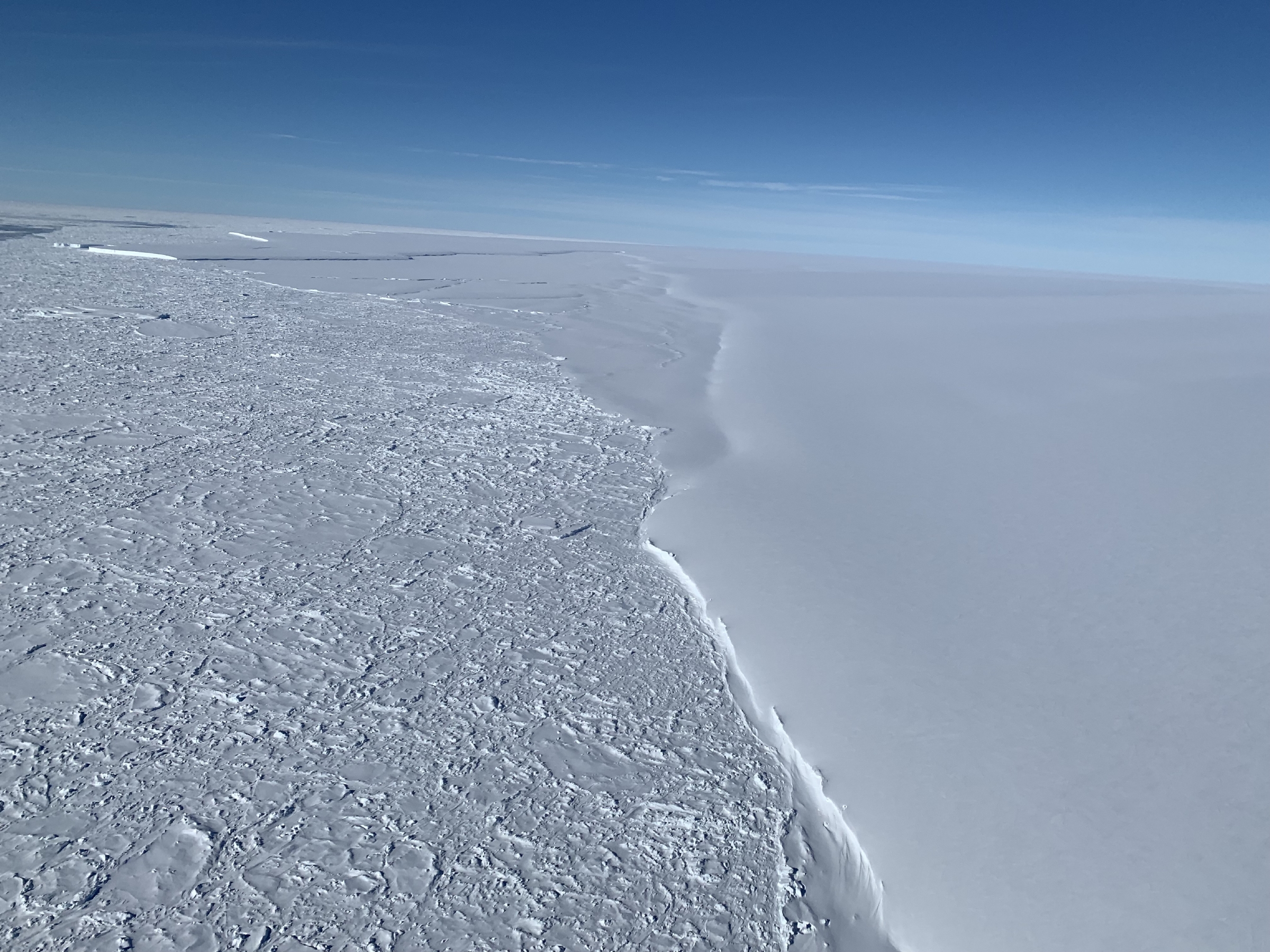Expedition to Larsen C ice shelf thwarted by sea ice
Sea-ice conditions have prevented the Research Icebreaker Polarstern from reaching the Larsen Ice Shelf and the calving areas of iceberg A68, which broke away in July 2017.
Last week, the ship’s captain and the head of the expedition jointly decided they could not continue on their planned route to Larsen C Ice Shelf. After spending a week trying to break through dense sea ice and ice ridges up to ten metres thick, the ship has changed course and is now heading to alternative research sites further north.

The sea-ice extent in the Antarctic at the end of December – 4.94 million square kilometres – was the lowest recorded for the month since the beginning of continuous satellite monitoring (more information in this report). However, expedition PS118 to the western Weddell Sea, encountered particularly dense and compacted regional sea ice north of iceberg A68.
The researchers will now focus on a region in the northwest Weddell Sea, investigating how environmental conditions, such as sea-ice cover affect the Antarctic marine ecosystem. The scientific results will, among other things, contribute to our understanding of how the Antarctic is responding to climate change.
Dr Boris Dorschel from the Alfred Wegener Institute (AWI) is leading the expedition. He says:
“We are now deploying our scientific equipment to investigate everything from the sea ice floating at the surface down to the bacteria in the mud on the seafloor and most things in between. We want to produce a comprehensive snapshot of the ecosystem, environment and animals that live in this frozen ocean.”
In addition, the expedition team will take advantage of any gaps that appear in the sea ice that would allow them to investigate other areas further east. There, beyond the continental shelf, the seafloor rapidly plummets from 400 metres to more than 3000 metres.
Marine biologist Dr Huw Griffiths, from British Antarctic Survey, is on board to study the seafloor biology. He says:
“We are obviously disappointed not to reach Larsen C, but we always knew that ice conditions in the Weddell Sea are some of the most challenging in Antarctica. We are now concentrating on collecting samples in an area where very few scientists have worked before to help us understand the Antarctic ecosystem.”
Dr Dorschel concludes:
“Despite the difficult ice conditions, spirits are high on board, and we have plenty exciting science to do.”
Read the announcement from AWI here.
